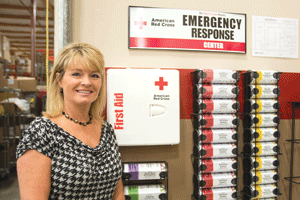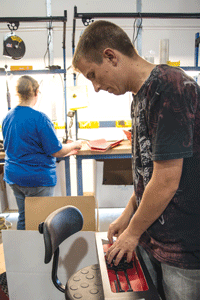Here in Southwest Washington, many local farmers and food producers are already operating without the use of genetically modified seed or ingredients. Our local food network is seeing strong growth in organic/GMO-free/sustainable practices. Farmers markets and CSAs (community supported agriculture programs that allow consumers to buy directly from farmers) that support small farmers are booming. Consumers here and across the country are expressing an increased desire to know who makes their food, what is in it, and how it might affect their health. Many of our local food producers would not be subject to the measure because they have already made the business decision not to use genetically modified seed or ingredients. This could mean a possible boost for our local food producers, who would not have to label their food and who could benefit from increased consumer awareness and desire to avoid GMOs.
 Jordan Boldt, executive director of the Vancouver Farmers Market, indicates that the market as an organization doesn’t have a formal position on the measure. “However,” he noted, “I think it’s very clear which way the tide is going, at least from the perspective of consumers. Anything to bring attention to healthy local food is something we feel is important and something we support. I have never heard a parent say, ‘No, I do not want to feed my child that local organic corn… We only eat genetically modified products in this house!’”
Jordan Boldt, executive director of the Vancouver Farmers Market, indicates that the market as an organization doesn’t have a formal position on the measure. “However,” he noted, “I think it’s very clear which way the tide is going, at least from the perspective of consumers. Anything to bring attention to healthy local food is something we feel is important and something we support. I have never heard a parent say, ‘No, I do not want to feed my child that local organic corn… We only eat genetically modified products in this house!’”
However, said the Washington Policy Center’s Environmental Director Todd Myers, growing concern about genetically engineered food isn’t scientifically proven.
“Every major scientific organization,” he explained, has pointed out that “biotech food is no different and no more dangerous or safe than any other crop that has been cross-bred.” The initiative’s supporters, he added, are “trying to insinuate that there’s something wrong. When you label something, you indicate there’s a concern.”
But, said the Yes on 522 campaign’s Communications Director Elizabeth Larter, those concerns do exist.
“This is a consumer rights issue,” she said. “A shopper has a right to know about the food they are buying and feeding their families. We have all of this nutritional content on our labels; we know whether vanilla is natural or artificial. We have a laundry list of ingredients in everyday foods. This is just giving people information they need and want to know when they go to the grocery store.”
This sentiment is echoed by many local food producers.
“More people are looking for non-GMO lately,” said Matt Schwab. Schwab and his wife Jen run Inspiration Plantation in Ridgefield, a family farm featuring grass-fed meats and eggs as well as organic produce. “Most people would like to know,” he said. “Even if it turns out that GMOs are fine and there’s not any adverse affects, people would still like to be able to make the decision. Our customers come to us because we advertise that we don’t use GMOs in our feed.
“Here in Clark County,” added Schwab, the measure shouldn’t have a notable negative economic effect on local farmers. “Farmers wouldn’t be affected in labeling products because I don’t think anyone here is growing grain quality corn, soy or canola.” Although some farmers do raise GMO corn for feed and silage, they would not be required under this measure to label their products accordingly.
Kelly Baur, of Baur’s Bartletts pear farm in Ridgefield, is another farmer who feels more information is better.
“I think being honest to consumers should be a part of the food business,” she said, “not a potential hazard.”
“To me, it’s natural that the next step will be greater scrutiny in how food is grown and handled,” added Boldt. “I know that many local farms are already taking great pains to let people know that they do not raise GMO products or use harmful chemicals.”
{jathumbnail off}








